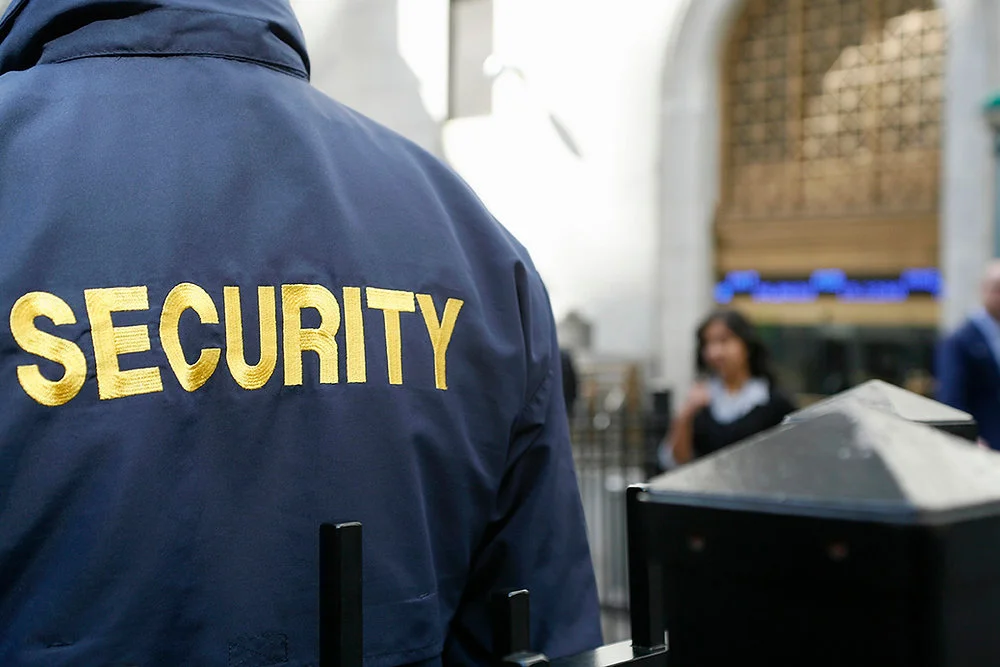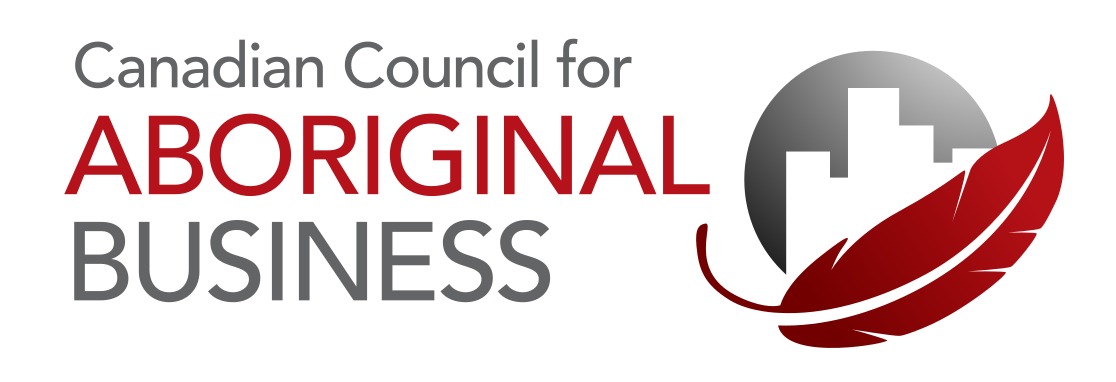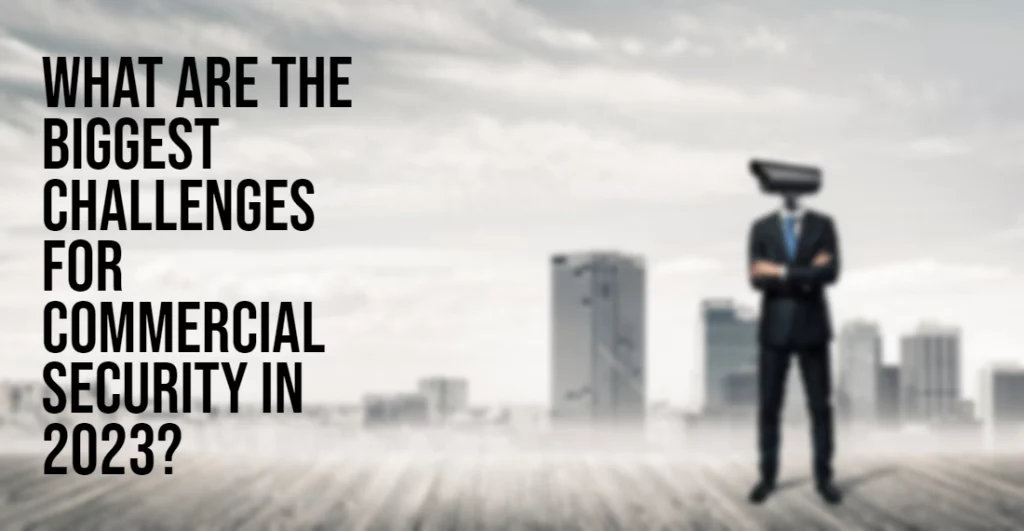The trends in businesses, shopping, and recreation have altered from big open places to large commercial hubs. Malls have replaced markets and virtual gaming is substituting park rides. More or less every individual wants to get more in less space and there lie the commercial developments. In 2023, commercial security will confront a variety of challenges. The threats to the security of businesses and societies increase with technological advancements. Companies must remain alert and proactive in order to defend themselves and their possessions.
Challenges to Commercial Security
Businesses are moving their operations online and storing sensitive data in the cloud being vulnerable to cyber-attacks. Cybersecurity threats are among the biggest challenges for commercial security in 2023. Cybercriminals are continually coming up with new behaviors to breach security systems and snip information. To fight this, companies must stay informed about the latest security trials and capitalize on advanced commercial security systems that can identify and prevent cyber threats.
Cybersecurity threats
Moreover, cybersecurity has become a crucial concern for all businesses, irrespective of their size and niche. Commercial security monitoring services are dealing with the rise of digitalization and the growing use of cloud computing, and the possibility of cyber-attacks has been reduced. Businesses need to be alert to the impending risks and challenges that they may confront in the preceding years.
- Ransomware Attacks: They are likely to rise in 2023. In a ransomware attack, the invader takes control of the target’s computer or network and demands compensation to restore access. Such attacks can be shocking to businesses as they can consequence in significant reputational damage and financial losses. Businesses must have strong security measures in place, containing employee training and regular backups, to avert and mitigate the influence of ransomware attacks.
- Phishing Attacks: These are common campaigns used by cybercriminals to snip sensitive information from industries. This involves an email that appears to be from an authentic source, such as a bank to trick the receiver into providing their login credentials or personal information. Commercial Security Services Edmonton help to detect and train employees to identify and report doubtful emails.
- Cloud Security: Many companies are moving their applications and data to the cloud, which can enhance efficiency and decrease costs. Though, this also leads to new cybersecurity risks. Businesses need to certify that their cloud service providers must have robust commercial security systems including encryption and access controls.
- Insider Threats: These threats remain an important concern for businesses, as employees may deliberately or unintentionally compromise sensitive information. Companies must have strong access controls with commercial security guard services in place to avert unauthorized access to sensitive information.

Employee security awareness
Employee awareness and understanding regarding the security risks and implementation of the best practices to run a smooth workplace is all about commercial security systems. This includes identifying and reporting potential commercial security threats, such as suspicious activity or phishing emails as well as company security policies and procedures. Companies should invest in employee training programs under commercial security professionals to educate their staff. This can help to avoid costly security breaches and defend the company’s reputation.
Many staff members may not understand the significance of security or how their actions can influence the security of the company. This can result in inconsiderate behavior, such as using feeble passwords or clicking on suspicious links. The significance of a commercial security breach can be severe, including damage to reputation, financial loss, and legal consequences.
- Training: Effective security training can be a deterrent to continuously evolving commercial security threats. Companies need to certify that their training is advanced and relevant to the current security scene.
- Time constraints: Commercial security systems enable and manage the time or resources to devote to increasing the employee’s security awareness training, particularly if they are busy with other job duties.
- Intricacy: Security can be an intricate and technical topic that can make it difficult for employees to comprehend and apply best practices. To enhance commercial security systems, businesses can incentivize employees to follow best practices for security by offering compensation or recognition for good behavior.
- Resistance to change: Employees may be resistant to altering their behavior or following security policies and procedures. Commercial security guard services should create a culture of security where staff are encouraged to report potential threats.
Physical security threats
Cyber threats are no doubt a major concern for the commercial security systems in Edmonton but the physical security threats cannot be ignored. Commercial facilities and buildings are vulnerable to theft, vandalism, break-ins, and even terrorist attacks. Commercial businesses should in physical security measures, such as Commercial Security Guard Services, and Commercial Security Monitoring Services including access control systems, CCTV cameras, and others. Major physical security threats include:
- Workplace Violence: This can take several forms including verbal threats to physical assault and it is becoming a growing concern for businesses, predominantly those in high-risk commercial businesses such as education, healthcare, and law enforcement. In the preceding year, the threat of workplace violence is expected to rise due to social and economic factors including the COVID-19 pandemic, political unrest as well as economic uncertainty.
- Cyber-Physical Pressures: With the accumulative integration of technology into Commercial Security Services, cyber-physical intimidations are becoming more common. These threats refer to attacks that target the physical parts of a commercial security system, such as alarms, cameras, and access control systems, through cyber means. In 2023, cyber-physical threats posed a significant challenge to commercial security systems with an increase in frequency and sophistication.
- Natural Disasters: Hurricanes, earthquakes, and wildfires can cause substantial harm to commercial properties and disrupt processes. The risk of natural disasters is anticipated to increase due to climate change in 2023, putting businesses at a larger risk of supply chain disruptions, property damage, and loss of revenue.
- Terrorism: Terrorism remains an important concern for businesses, mainly those in high-risk industries such as hospitality and transportation. Extremist groups continue to target commercial properties that need to be addressed with commercial security guard services.
Emerging technologies
Advanced technologies such as machine learning, AI, and the Internet of Things (IoT) present both prospects and challenges for commercial security systems. While these technologies can expand security trials, they can also be misused by cybercriminals to get unauthorized access to business systems. Establishments must carefully assess the risks and benefits of advanced emerging technologies and implement suitable security trials to defend their systems and data.
- Internet of Things (IoT): The growing network of connected devices, from industrial sensors to smart home appliances can improve efficiency and productivity but also creates security risks. These devices can be hacked and vulnerable to launch attacks on a business’s network or steal sensitive information. To address this challenge, businesses must apply robust commercial security systems for IoT devices and certify that all connected devices are correctly secured.
- Artificial Intelligence (AI): Transforming industries such as finance, healthcare, and logistics presents new threats to commercial security systems. In AI-powered cyberattacks, hackers can exploit machine learning algorithms to identify vulnerabilities in a business’s network and introduce more sophisticated attacks. Commercial organizations must find methods to mitigate these threats by investing in AI-powered commercial security systems that can detect and react to threats in real time.
- Blockchain: This technology has the potential to transform industries such as finance, supply chain management, and logistics. Blockchain systems are decentralized, making it hard to hack individual nodes, but also vulnerable where attackers can gain control of the system by controlling a bit more than half of the nodes.
- Quantum Computing: It has the potential to break down traditional encryption algorithms that are employed to secure sensitive information. Commercial security monitoring services must start formulating for the possibility of a post-quantum world by evolving new encryption methods that are tough to quantum attacks.
- Biometric Technology: Fingerprint and facial recognition are becoming common in commercial settings. Although this technology can enhance security and accessibility, it also presents new threats. Biometric data is delicate and can be hacked leading to identity theft. Industries must find ways to protect biometric data and certify that it is not used for reprehensible purposes.

Compliance and regulatory requirements
Companies must fulfill compliance and regulatory requirements such as HIPAA, GDPR, and PCI DSS, which can be intricate and time-consuming. Inability to comply with these regulations can affect in costly fines and harm the company’s reputation. To mitigate these threats, businesses must invest in compliance management systems to ensure that their security trials are enough for commercial security systems.
- The complexity of Compliance Regulation: Regulatory bodies need to constantly update their requirements to keep pace with new technologies and innovations to avoid disruption in commercial industries. Businesses must constantly acclimatize and adjust their security trials to stay compliant. Commercial security systems must use stricter data privacy laws to implement more sophisticated security trials. Commercial security monitoring services help to develop comprehensive risk management plans to defend against cyber-attacks and data breaches.
- The Risk of Non-Compliance: This includes legal and financial penalties, criminal charges, and loss of reputation. As regulations become more intricate and difficult to navigate, businesses must be more vigilant in their compliance plans to avoid these threats.
- The Impact on Commercial Security Systems: With the growing complexity of compliance regulations, companies will need to devote themselves to advanced security solutions, including intrusion detection and prevention systems, next-generation firewalls, and data loss prevention tools, to defend against cyber-attacks and data breaches.
Conducting persistent risk assessments, penetration testing to identify and address possible vulnerabilities, and vulnerability scanning before they can be broken as well as help to develop strong commercial security systems. Working with trusted commercial security guard services and commercial security monitoring services ensures that all security measures and compliance struggles are effective and reliable. Central Protection Services is a Canadian-based Security Company Edmonton offering services for the new world’s challenges. Our offices are in Edmonton, Calgary, Alberta Wide, Airdire, and allied regions. We offer technological systems and guards for residential and commercial sectors. Get the quote for technologically advanced solutions and superior services related to your security needs.


